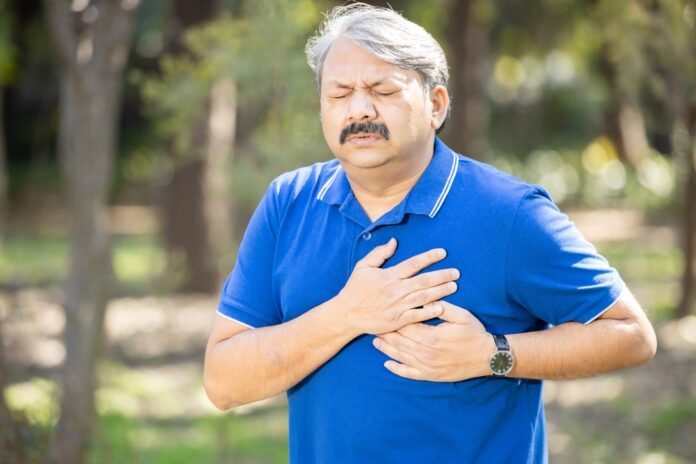As the temperature rises nationwide, the health and wellness department has raised an alert for heat waves in several states. The authorities confirmed an extended spell of heat this summer season starting at the end of April.
It’s not just about sweating profusely in the blistering heat; the impact on our vital organs can be devastating. Heatwaves can directly affect the functioning of our hearts, potentially leading to severe illness. To safeguard our health during this sweltering summer, it’s crucial to take some preventive measures.
Taking proper fluid substances reduces the body’s lack of water and helps keep the body hydrated. Reducing exposure to sunlight and wearing cotton cloths can help keep the body temperature low. During intense heatwaves, one can also use public air-conditioned transport other than 2-wheeler, which will remain naked to sunlight.
Symptoms Of Heart Issues During Heatwave
Various signs and symptoms can arise due to heatwaves or the higher temperature of the surroundings. Some of them are heavy sweating, cold and clammy skin, fainting, and vomiting. These symptoms can lead to heatstroke or massive heat exhaustion, which need not be ignored and should be treated as early as possible.
Simple Steps To Beat The Heat This Summer
There are several ways to keep yourself away from these damage-causing heat waves. People with cardiovascular disorders should avoid direct or prolonged exposure to heat waves. Some of the best tips to beat the heat this summer season are as follows:
- Drink more water and keep yourself hydrated.
- Increase consumption of water-based fruits like Watermelon, Musk Melon, etc.
- Wear Cotton Clothing
- Avoid consumption of liquor as it produces heat inside the body.
- Avoid direct sunlight exposure.
- Avoid heavy workout in the gym or at home
- Avoid traveling to places with high temperatures, like Uttar Pradesh and Rajasthan in India, which are likely to be the hottest in the summer.
In summary, one needs to keep one’s body hydrated, consume water-rich foods, and avoid direct exposure to sunlight.



